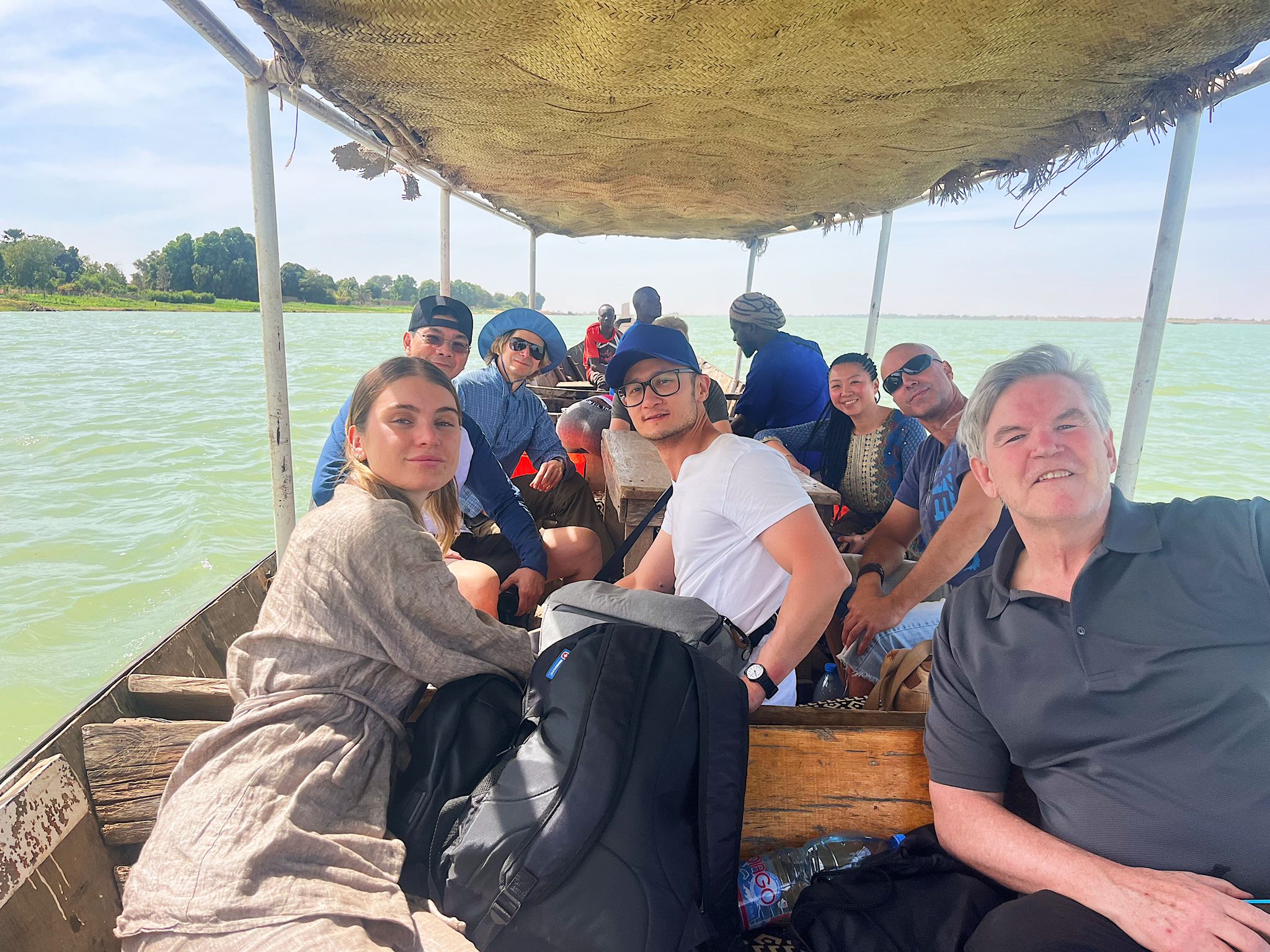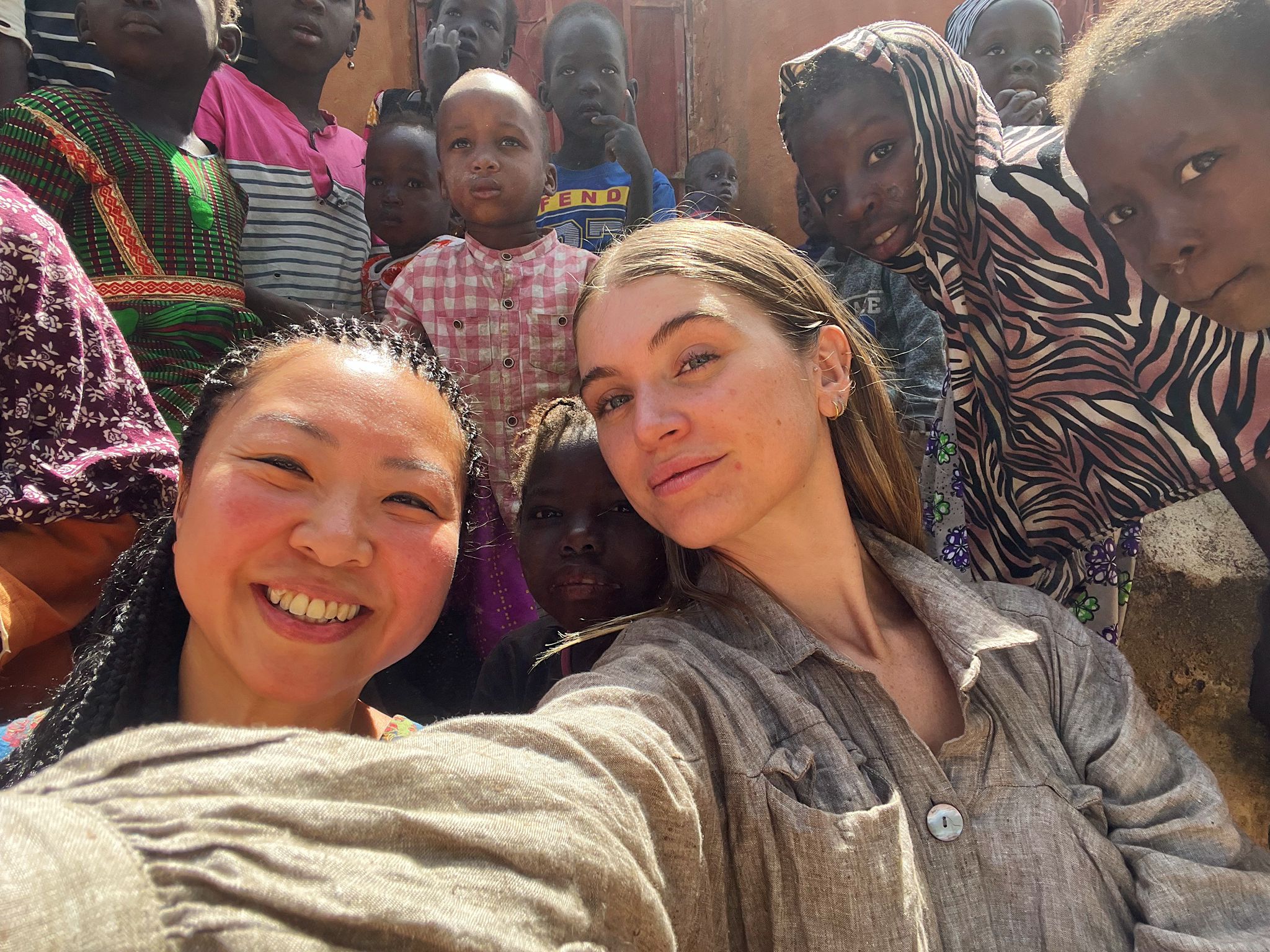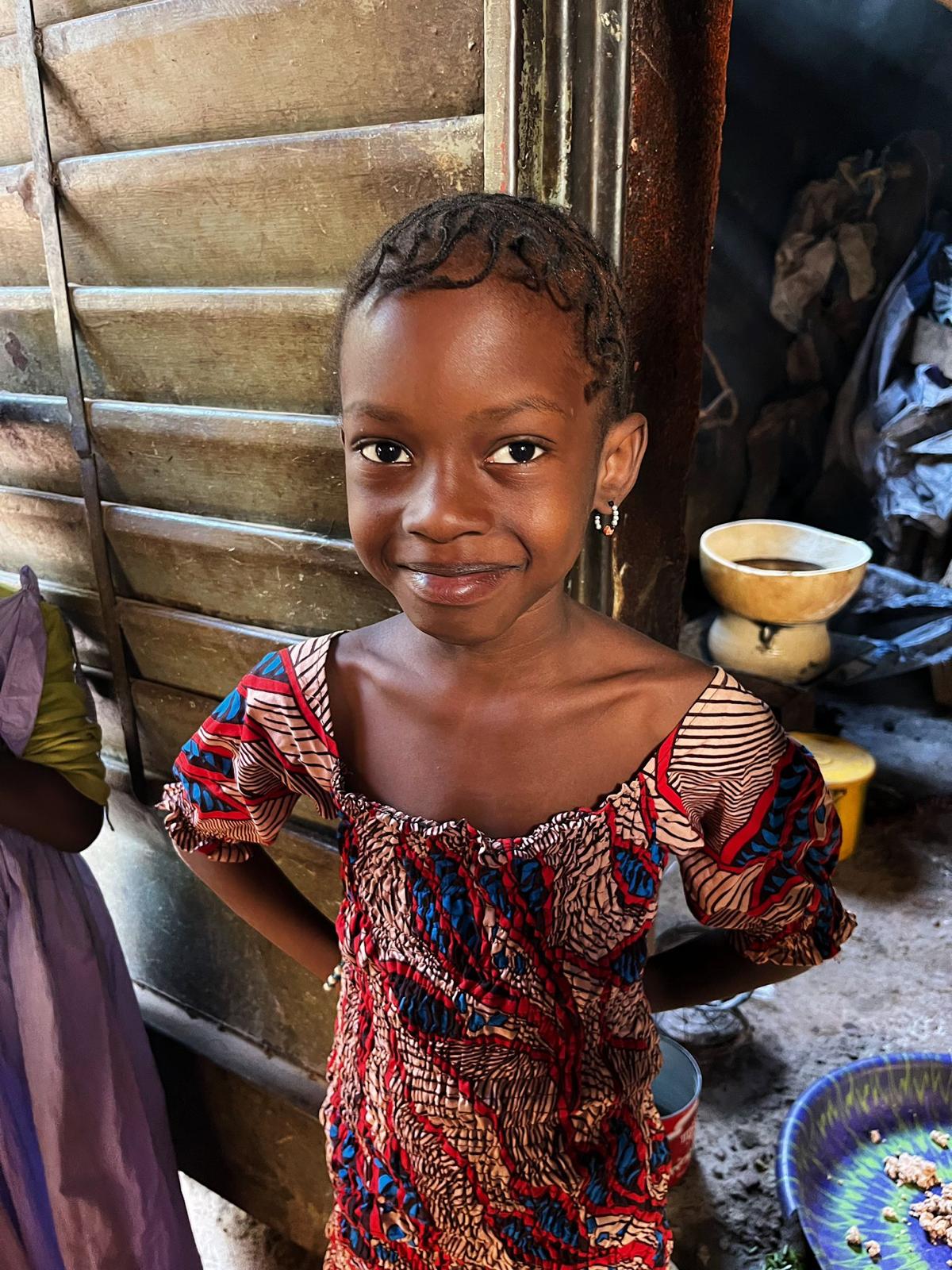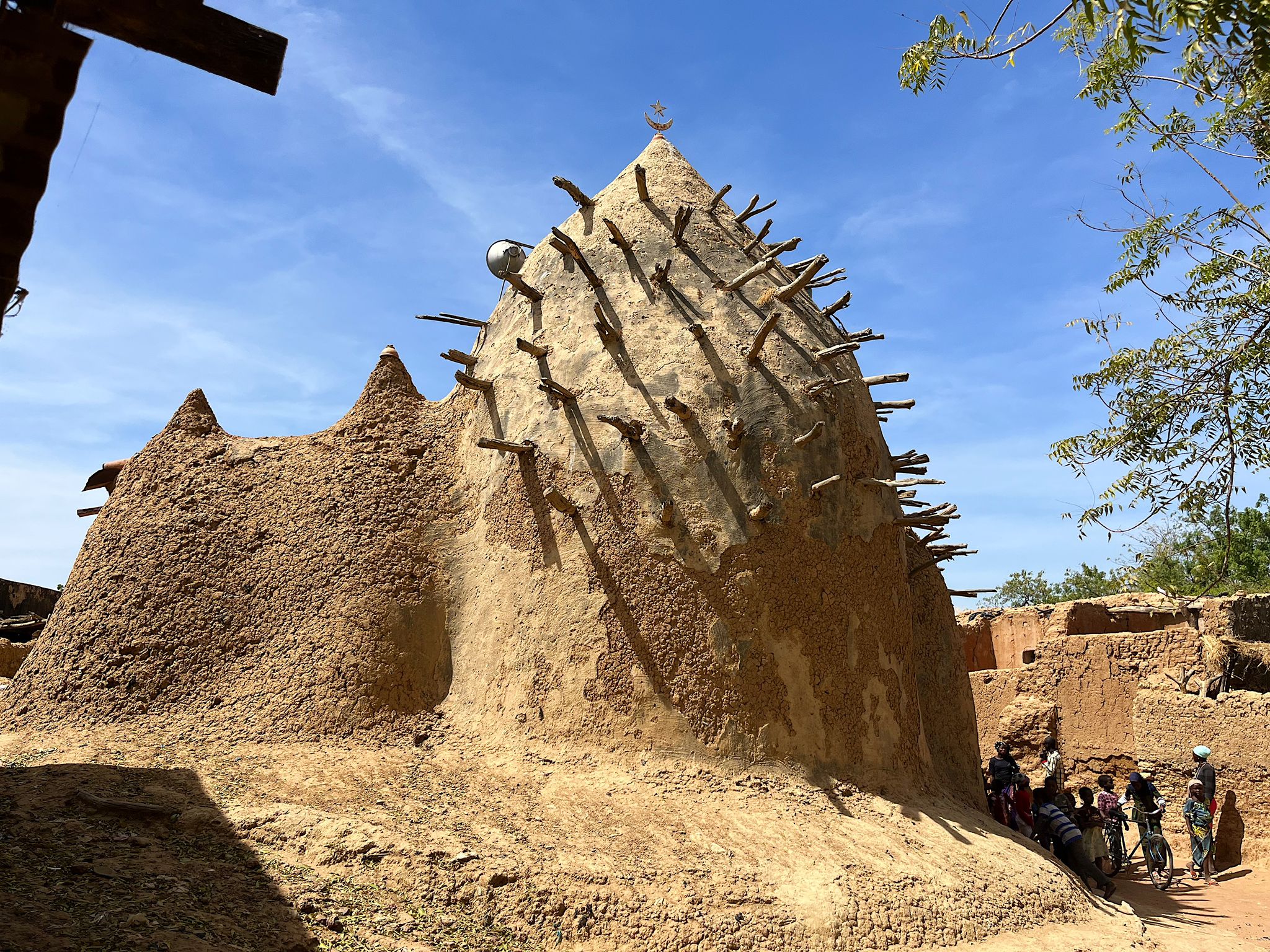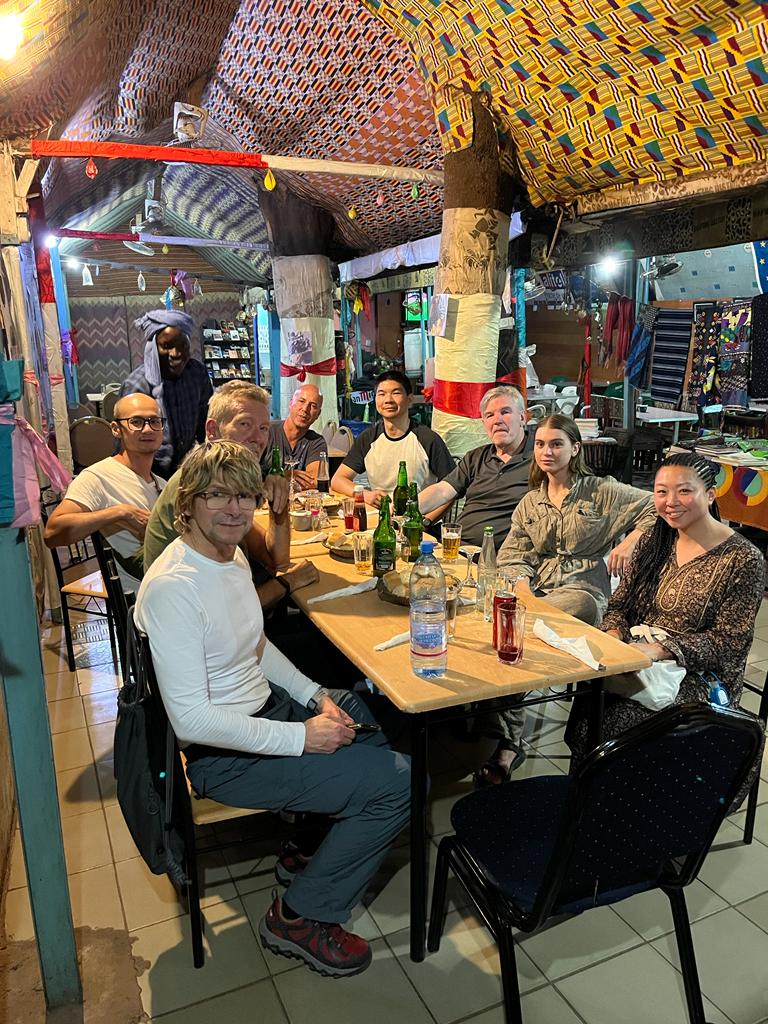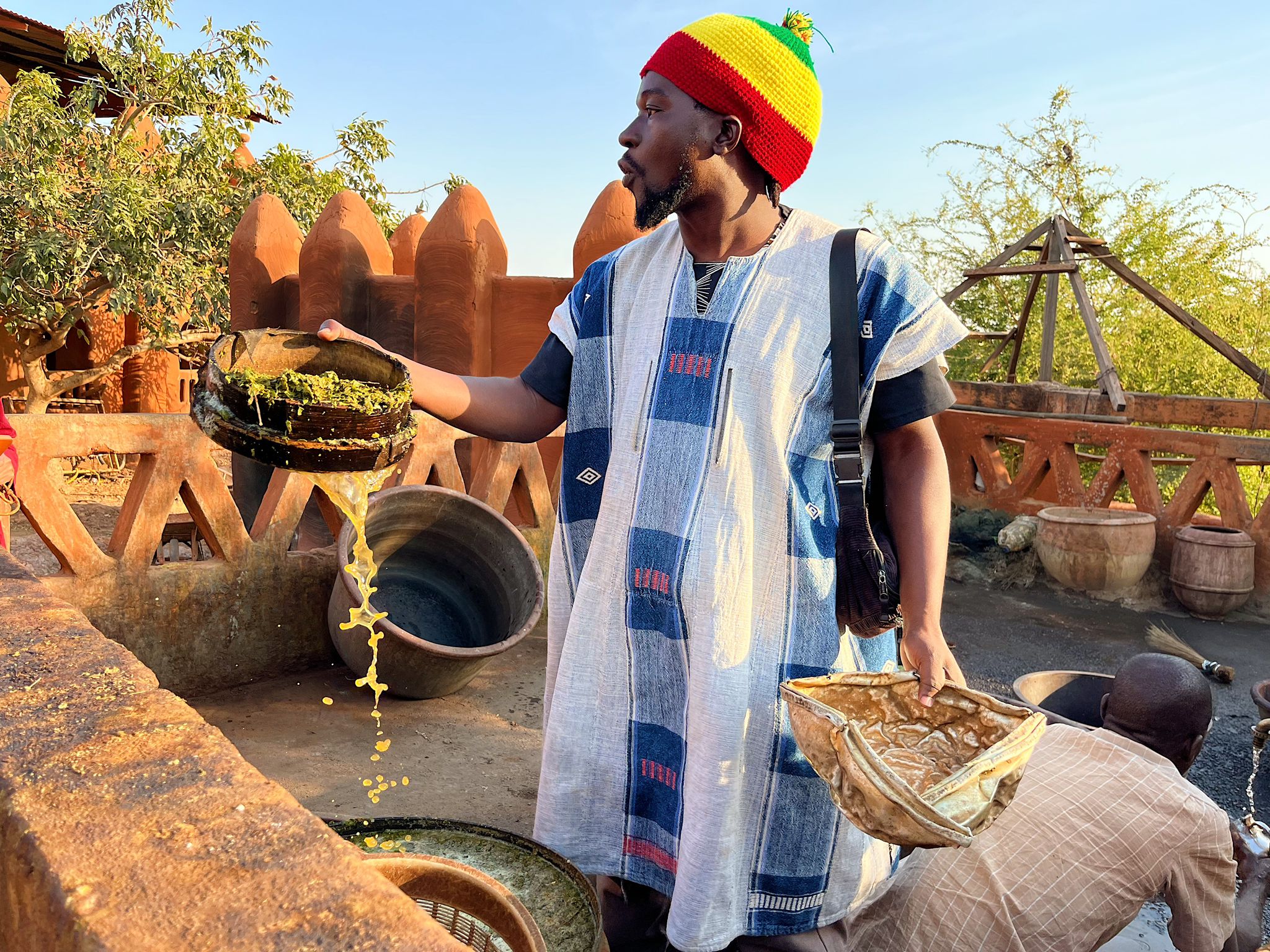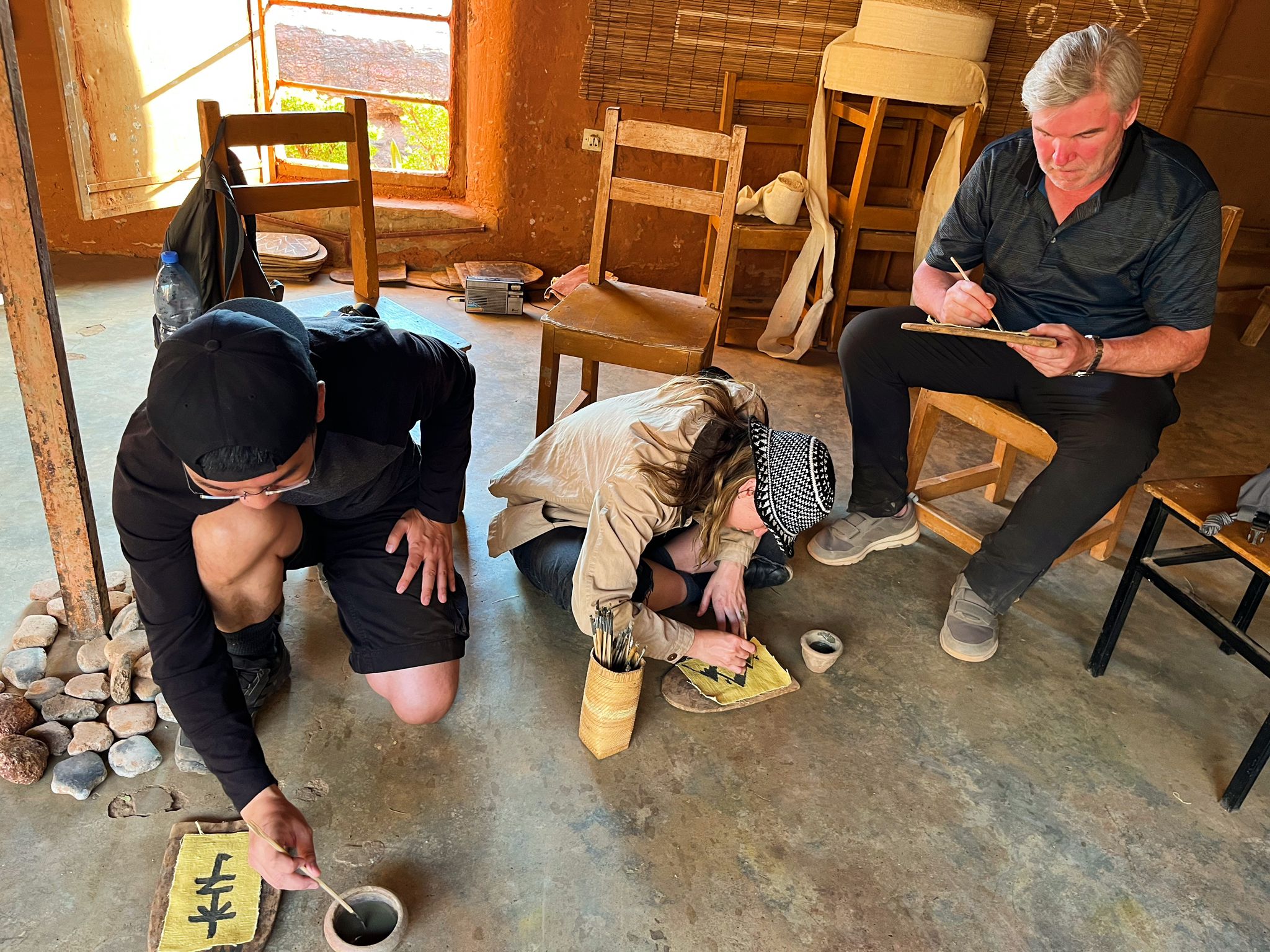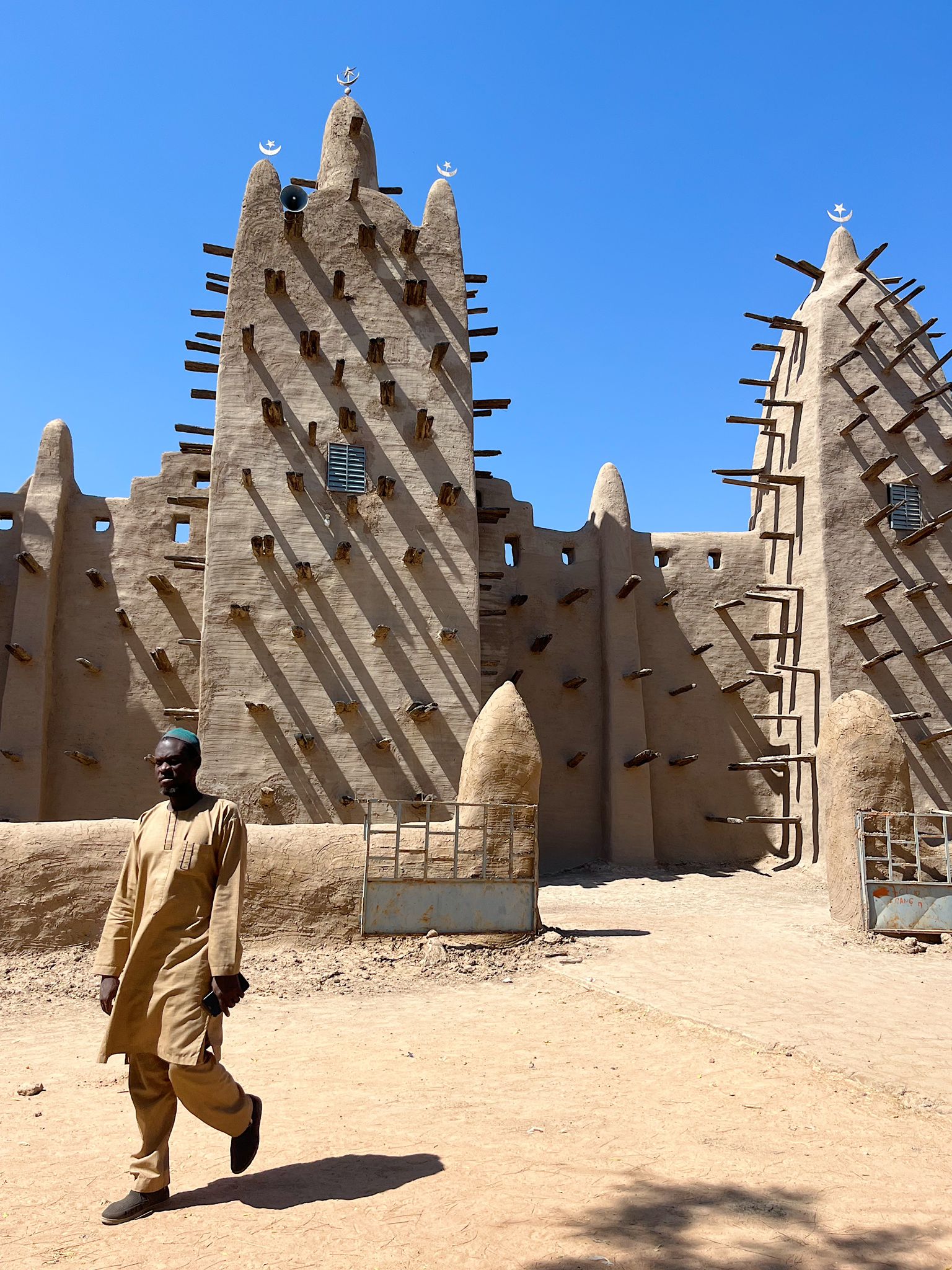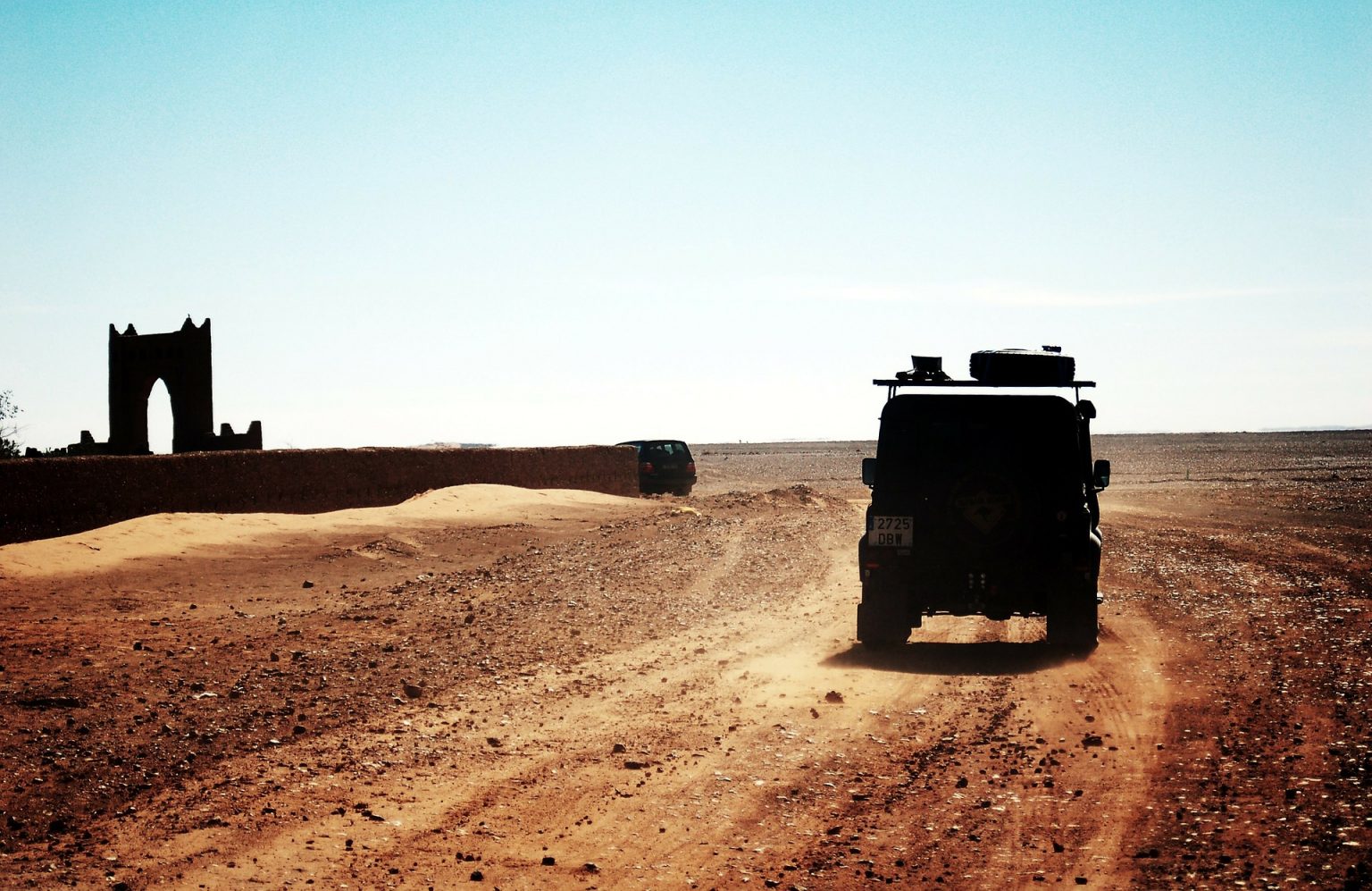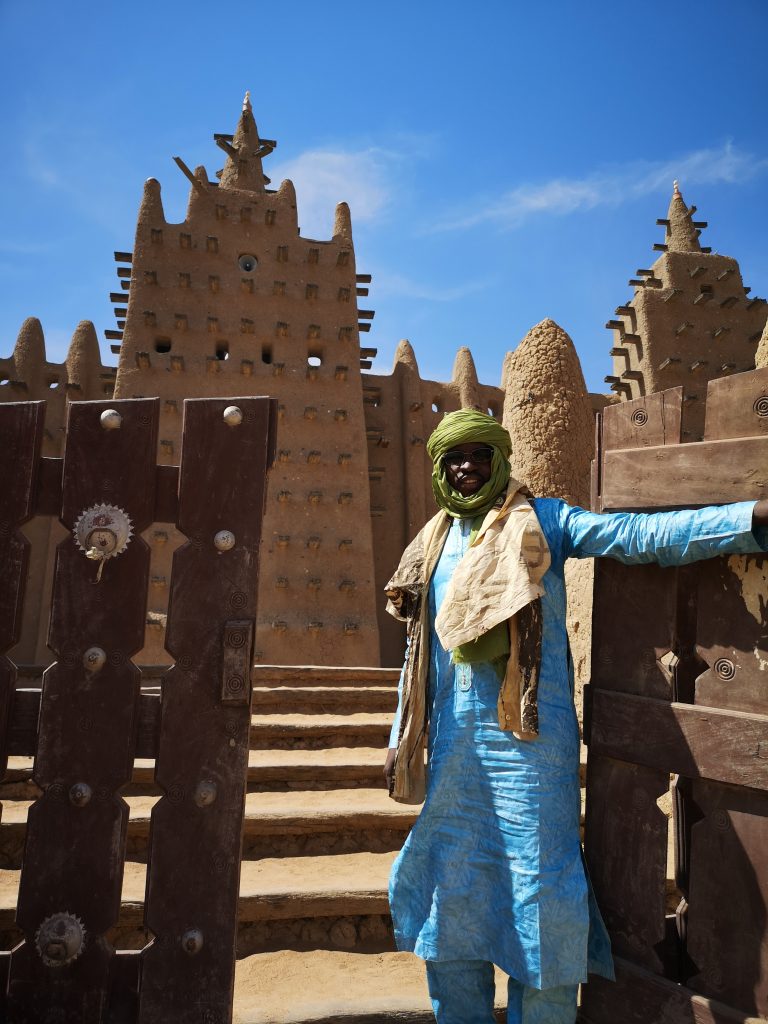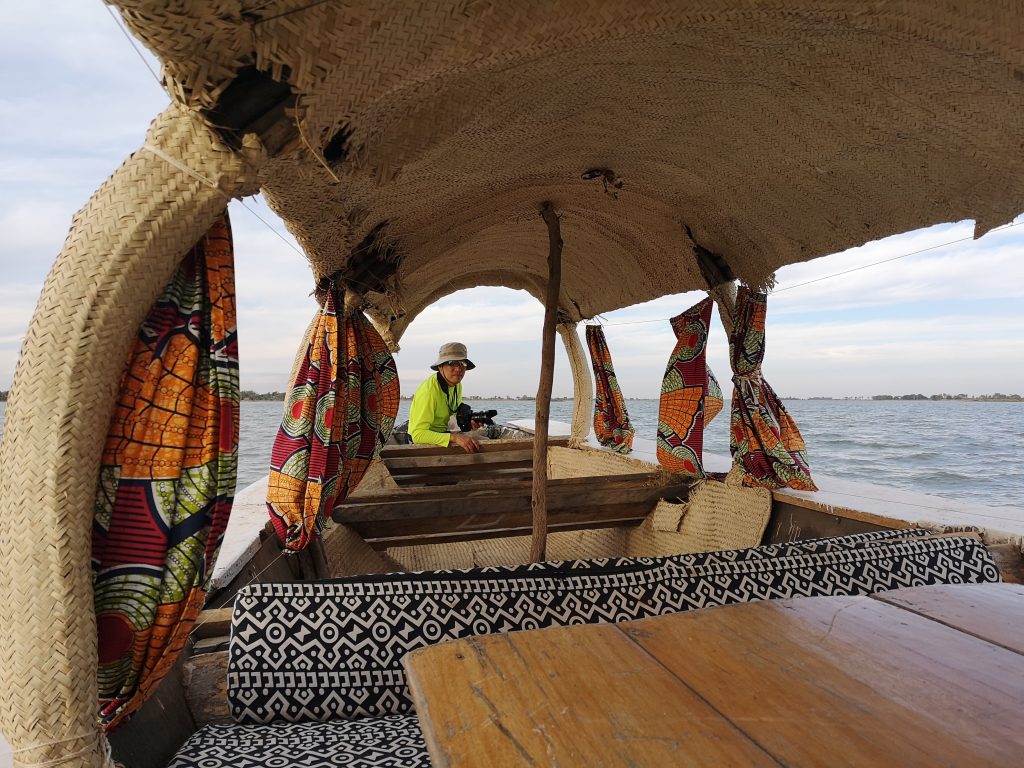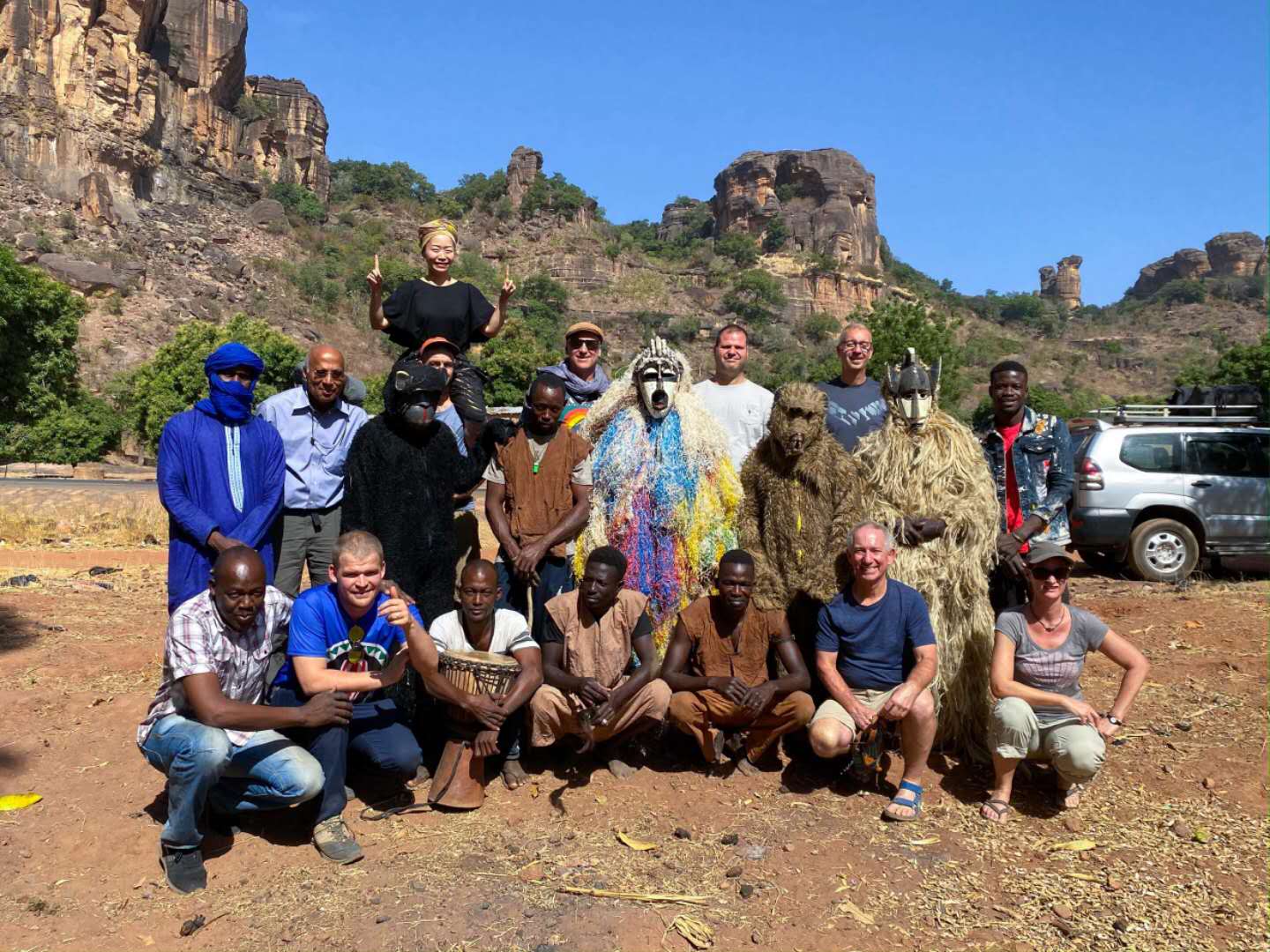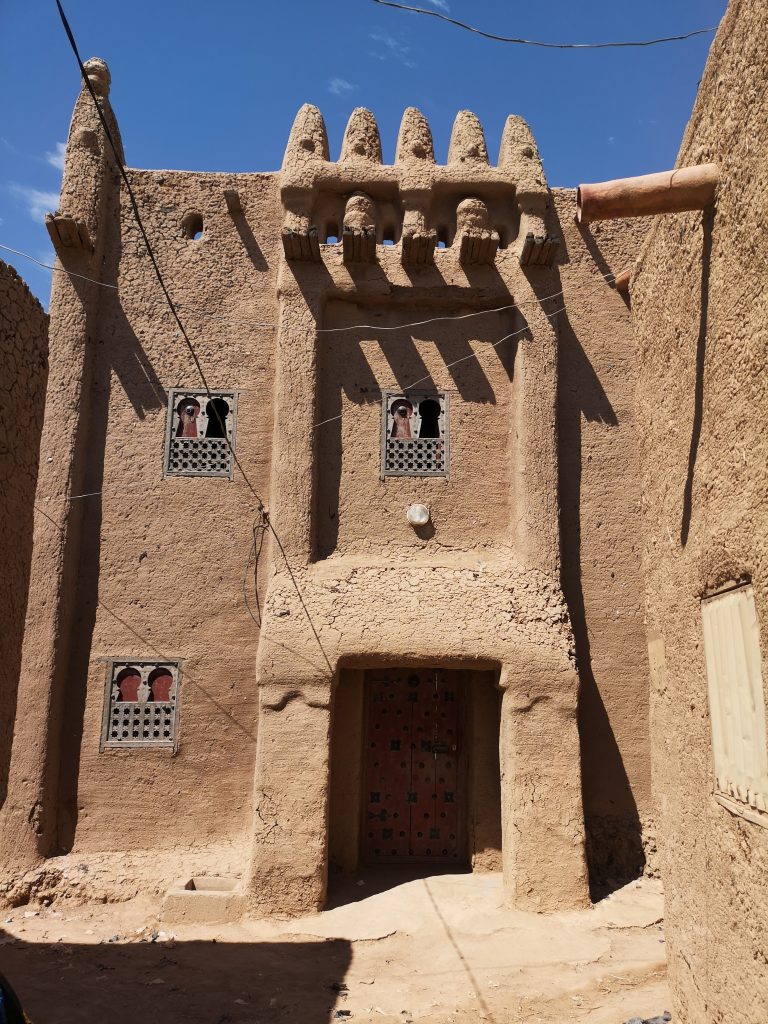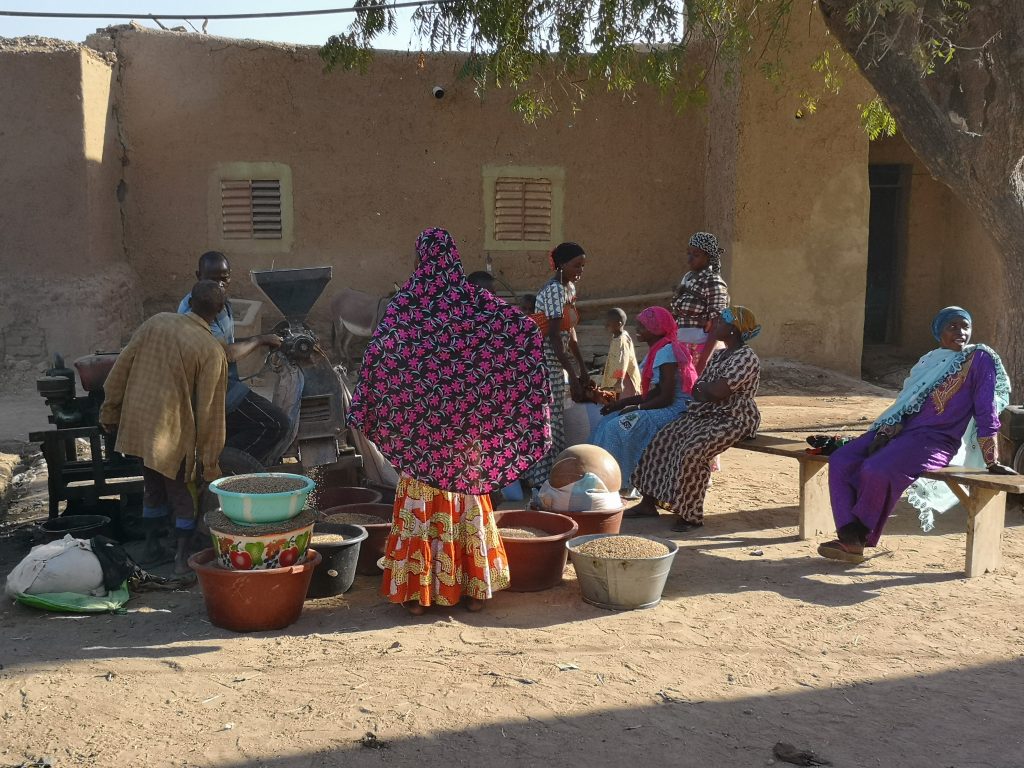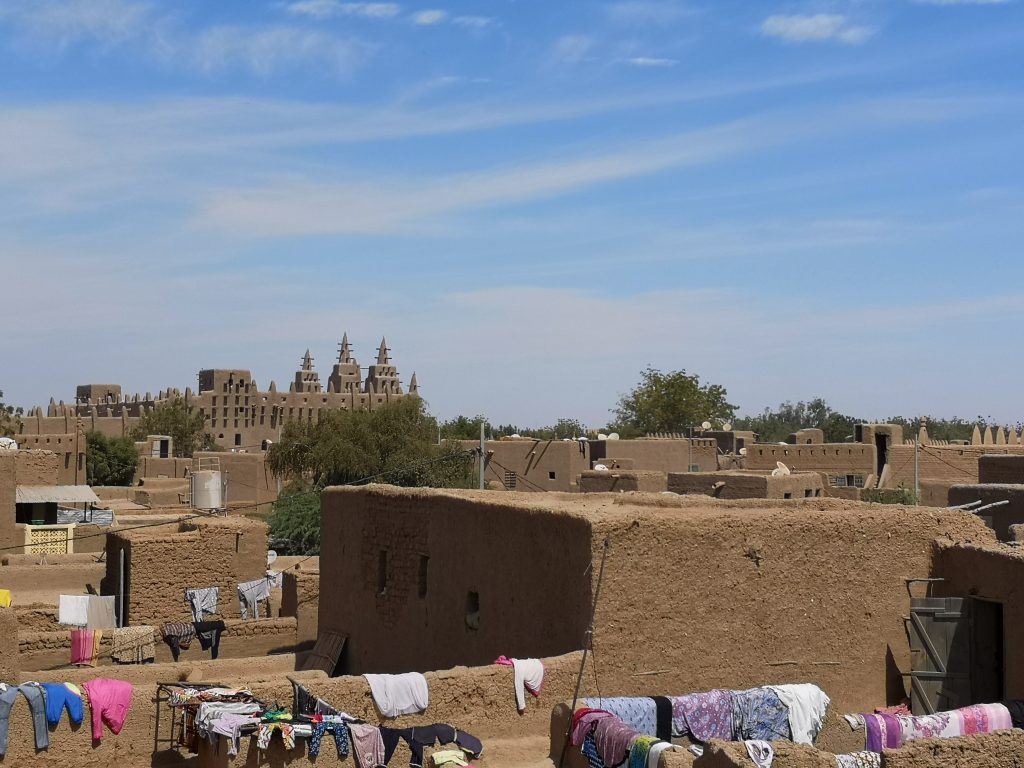YPT Tours to Mali
Mali tours to one of the largest – and completely landlocked – countries in Africa are quite an adventure.
By joining one of our Mali tours, you’ll learn the country’s history in the ancient city of Timbuktu, a UNESCO World Heritage Site and once a scholarly and trading center of immense prestige. You’ll also explore the iconic mud-brick architecture of Djenné, a testament to Mali’s rich cultural heritage, and lose yourself in the vibrant Grand Market of Bamako.
Mali’s beauty extends far beyond its historic cities, with the vastness of the Sahara Desert and the Niger River, the lifeblood of Mali.
Let’s not forget Mali’s greatest treasure, its people. Renowned for their warm hospitality (“diatiguiya”), Malians will welcome you with open arms, inviting you to share their traditions and experience the true essence of this extraordinary country.
There are many reasons people avoid travelling to Mali, but for the truly adventurous, this is an incredible mesmerizing country full of unexplored destinations rich in stories and a vibrant local culture dating back 1000’s of years.
Due to security concerns in Mali, you want to make sure you put your trip in trusted hands to ensure a safe, engaging and informative trip to Mali, which is exactly what we can offer you in conjunction with our local partners who have unparalleled access and relations on the ground in Mali.
Group Tours to Mali
Due to the unstable situation there, YPT currently does not offer tours to Mali. We continue to monitor the security situation in the country. If you would like to be notified when tours resume, please send an email to tours@youngpioneertours.com. In the meantime, you can have a look at our tours to the neighbouring Algeria and Mauritania, or to the West Africa countries of Benin, Ghana and Togo.
Independent Tours to Mali
While our Mali tours are currently on hold, below is an example itinerary for when tours are able to resume. Prices depend on the number of people and what level of accommodation you desire, but YPT can arrange everything you need for perfect independent Mali tours as soon as the security situation allows it.
Example of a Mali Itinerary (7 days)
Day 1: Bamako
- Arrive at your convenience in Bamako, Mali’s largest and capital city, which is well connected from many countries within Africa and most Europe. Bamako boasts bustling markets, a beautiful Mosque and an enormous national museum to explore.
- You will be transferred to your hotel and meet your local guide who can assist you with exchanging money and answer any questions you may have.
- Head out into the heart of Bamako to a lovely local restaurant for authentic Malian cuisine
- Depending on the time, you can visit a traditional puppet maker’s workshop. The oldest and richest puppet traditions in Africa!
- Then you can explore Bamako’s notorious live music scene, mingle with some locals, and maybe have a few drinks.
- Overnight at a hotel in Bamako.
Day 2: Bamako – Segou
- Have breakfast at the hotel, and set off to explore the city, with a first stop at the bustling Rose Market in the heart of the town. You can also check out the vantage point and see it from above. The sheer size of the city is mind-blowing!
- Visit the Tower of Africa. It is the tallest structure in Mali at 80 meters in height and is no boring piece of architecture!
- Drop by the Grand Malian Independence Monument and admire the impressive marble-plated pillar with gilded ornaments.
- Explore the National Museum of Mali, with a collection of 10,000 items, ranging from traditional masks and costumes to textiles, old photos and many videos.
- Have lunch at Bating restaurant. Here they serve famous Timbuktu cuisine and delicious ginger juice.
- Continue your journey to Segou, a town built along the banks of the Niger River.
- Before arriving, you can take a pit stop in Segoukoro, the former capital of the Bambara Kingdom. Here you’ll meet the village chief and will invite you for tea. He will explain the history of Segou, its royalty and answer any questions.
- Arrive in Segou
- Dinner at a local restaurant located in the town center and later explore Segou’s nightlife.
- Overnight at Djoliba Hotel (or similar)
Day 3: Segou – San
- After breakfast, it’s time for more exploration of Segou and its Somono neighborhood, a place filled with adobe (mud-brick) buildings.
- Next, you can stop at the Soroble Bogolan (mud-cloth) center. This traditional cotton fabric is dyed with fermented mud, representing one of Mali’s most influential cultural practices.
- Visit the nearby Calabash village. Here the locals will teach you the process of making fruit into large bowls and percussive musical instruments.
- After lunch, your journey continues onwards in a pinasse – the Malian boat of choice. You will be cruising along the Niger River, the third-largest river in Africa.
- Accept an invitation to a local fishing village to have a further insight to daily chores by the families and the fishermen.
- Drive onwards to San. You’ll visit a stunning adobe (mudbrick) mosque. The interior can only be visited by Muslims, but the sheer style and artistry of the building is equally appreciated on the outside.
- Overnight in San Hotel (or similar).
Day 4: San – Djenne – Mopti
- Wake up early for breakfast with a 6:00am departure to Djenne, known as the ‘capital of mud’. The entire architecture from the streets to the buildings is made from mud brick, often resulting in fascinating and unique designs.
- Take a stroll through the old town, stopping by Koranic schools and mud structures.
- Stop by the center of Islamic scholarship, a Quranic school and the Museum of Djenne’s manuscripts. Here a single man protects these ancient, irreplaceable artifacts
- Visit the Djenne’s Great Mosque, the world’s largest mud building and a UNESCO world heritage site. The inside of the Mosque can only be visited by Muslims but is impressive outside with its grand size and unique design.
- For another vantage point you will visit the sacred well – Tapama’s tomb. Here you can climb to the rooftop for a stunning view of the Great Mosque.
- After lunch, jump back on the road and continue to our favorite city in Mali, Mopti, which is more than a “gateway” to major highlights. Instead, the fourth largest city in Mali is a vibrant port where you can board a boat and ride through it.
- Explore the city and see the Mosque of Mopti. The Malian Government listed this as a national monument in 2005.
- Climb an adjacent building to watch a stunning sunset over the mosque.
- Dinner in town and overnight in Mopti hotel (or similar)
Day 5: Mopti – San
- Eat breakfast at hotel and head out to the busy fish market.
- Visit two adobe mosques which are among the finest architectural expressions in Africa.
- Now is a perfect opportunity to sample a famous local dish found only in Mopti that consists of shallots. These are loved by the locals due to their sweet and unique flavor.
- Wander through the High Library of Manuscripts and the explorers’ house, a high level of civilization attained by West Africans during the Middle Ages which provides undeniable proof of a powerful society.
- Enjoy a lunch in town before our journey returns us back to San. The Bobo people mainly inhabit the area, an animist ethnic group. If time allows we can arrange a stop to a local village to learn more about their way of life.
- Dinner on arrival in San. We recommend the “Jollof rice” which is rice with tomatoes, and meat.
- Overnight in hotel
Day 6: San – Sikasso
- Breakfast at the hotel and begin today’s drive to Sikasso, located right on the border with Burkina Faso. Sikaso is known for their vibrant outdoor markets that feature fabrics, numerous vegetables and fruits (especially mangoes).
- Visit the symbolic Mamelon Hill. King Tieba Traore established his palace to defend against the attacks of enemies, including the French colonial army.
- Explore the fortified Wall of Tata, the Regional Museum, and the tomb of Babemba Traoré who was the brother of king Tieba!
- Siakasso has some of the best street food in Mali. Cheap, tasty, and tender bowls of vegetables and meat.
- Visit the Grand Marché, one of the largest markets in town. Also a perfect opportunity to buy any last minute gifts from Mali.
- Explore the Faramissiri Cave, a sacrificial cave used by both Muslims and Animists. The cave offers the perfect spot to admire a lovely sunset over Sikasso.
- Enjoy a final dinner and overnight stay in Siksasso.
Day 7: Ouagadougou
- Start your day with breakfast at the hotel and begin the 350km drive back to Bamako.
- Tour concludes on arrival in Bamako with a transfer to the airport at your given transfer time.
Bespoke Mali Tours
When travel to the country is possible, we are able to offer the following bespoke Mali tours. Should what you are looking for not be on this list, please get in touch to see if we can fix it for you.
Explore the metropolis of Bamako
Continuously inhabited by humans since prehistoric times and straddling the mighty Niger River, Bamako is now a chaotic city of 1.7 million people, making it one of the largest in West Africa. The city is full of bustling markets, fascinating museums, towering monuments and delicious cuisine. A nightmare to navigate, our local guides know the best routes throughout the city to make sure you don’t miss out on anything and come to understand the soul of the capital and what makes it tick along.
Soak in Ancient History With a Visit to Ségou Koro
The village of Ségou Koro was the centre of Biton Mamary Coulibaly’s Bambara empire, and he is buried here. The crumbling Bambara era buildings and ancient mosques leave an aesthetically long-lasting impression on visitors. However, the real highlight of visiting here is the chance to meet the village chief, who is a direct descendant of the kings of old and to receive an in-depth tour of the village.
Enjoy the Culture and Cuisine of Segou
A historic city located on the Niger River with an amazing cultural and food scene. A day here can easily be spent wandering through the old town that has the oldest adobe buildings, a traditional architectural style house found mostly in Segou that helps keep the family inside cool during intense summers. Don’t be surprised if you are invited inside a local family’s home for a traditional tea ceremony or to have a homecooked traditional Mali meal served up to you.
Segou’s outskirts are full of villages made up of locals who make intricate handicrafts unique to this part of the world and even a village entirely made up of blacksmiths who spend their days forging over their smiths.
The UNESCO World Heritage Site City of Djenne
This ancient trading city and UNESCO world heritage site located on the Bani River, Djennes claim to fame in the world is its mosque which is the largest mudbrick building in the world and one of the most unique religious buildings on this planet. The area is also full of local tribes willing to show visitors their ways of life and how they survive in the harsh African wild with the chance to camp alongside them for a night.
Dogon Country
Dogon Country is the name used for a region in southern mali famous for its hidden villages that are embedded into cliffs up to 500m tall. In Dogon country, trekking between the various communities and witnessing ancient ceremonies will leave lasting impressions of Mali on you for the rest of your life.
The Dogon people that make up this area have been here for thousands of years and have refused to convert to Islam, giving them a totally unique religion, culture and language.
We can arrange for you to have one of the most unique overnight stays in your life in one of these villages and take part in a traditional Dogon mask ceremony. This is where the elders of the village chant in order to chase evil spirits while the very sacred Dogon masks are taken out of their holy places to be worn for the dance. All members of the community, Muslims, Catholics and animists alike, unite to re-enact traditional dances.
Manding Country (alternative to Dogon Country)
The place where the Dogon people actually originate from, this is a place of warm hospitality and history in Southwest Mali that provides a similar experience to Dogan Country mentioned above.
In Depth Sikasso Tour
Spend an extended amount of time in Sikasso, the vibrant hub of Mali! Sikassos biggest industries include agricultural and material production such as yams, cotton, maize and vegetables. But Sikasso is more than a working city: explore the nightlife, culture and history that the city has to offer by staying for multiple days up to one week!
Mali Music and Cultural Tour
Visit Mali with a specific focus on enjoying what Mali is most famous for: its unique music! See locals perform songs as well as trying your hand at the Djembe – the traditional drum of West Africa!
Combination Tour
Join Mali as a part of your expedition to the region. Whether you are visiting Algeria, Mauritania, Burkina Faso or the West Coast, you can combine Mali with other group tours or on a private tour adventure!
Filming in Mali
YPT, through its sister company Pioneer Media, can provide support for film-makers wishing to use Mali as one of their filming locations. Through our unparalleled local contacts, we can provide you access to scouting locales for film projects as well as people who are eager to get the ball rolling on the immeasurable amount of potential Mali has as one of the next hot spots for film production.
Frequently asked questions about travel to Mali
The following countries can enter Mali visa free:
Algeria, Andorra, Benin, Burkina Faso, Cameroon, Cape Verde, Chad, Côte d’Ivoire, Gambia, Ghana, Guinea, Guinea-Bissau, Indonesia, Liberia, Macau, Mauritania, Monaco, Morocco, Niger, Nigeria, Senegal, Sierra Leone, Togo, Tunisia and United Arab Emirates.
You must apply via a Mali embassy. The application process largely depends on each embassy or consulate you use to submit your visa application. However, the following is standard requirements:
- Call or email the Mali embassy or diplomatic mission to arrange an appointment.
- Fill out a Mali visa application form from the embassy/diplomatic mission offices
- You will need to complete and arrange the required documents, pay the visa fee and submit the documents and application at the embassy/diplomatic mission. You may have to submit documentation in person or you may be able to submit by mail.
Please note that the Mali government is rarely issuing tourist visas because of the security situation in the country.
Gallery
